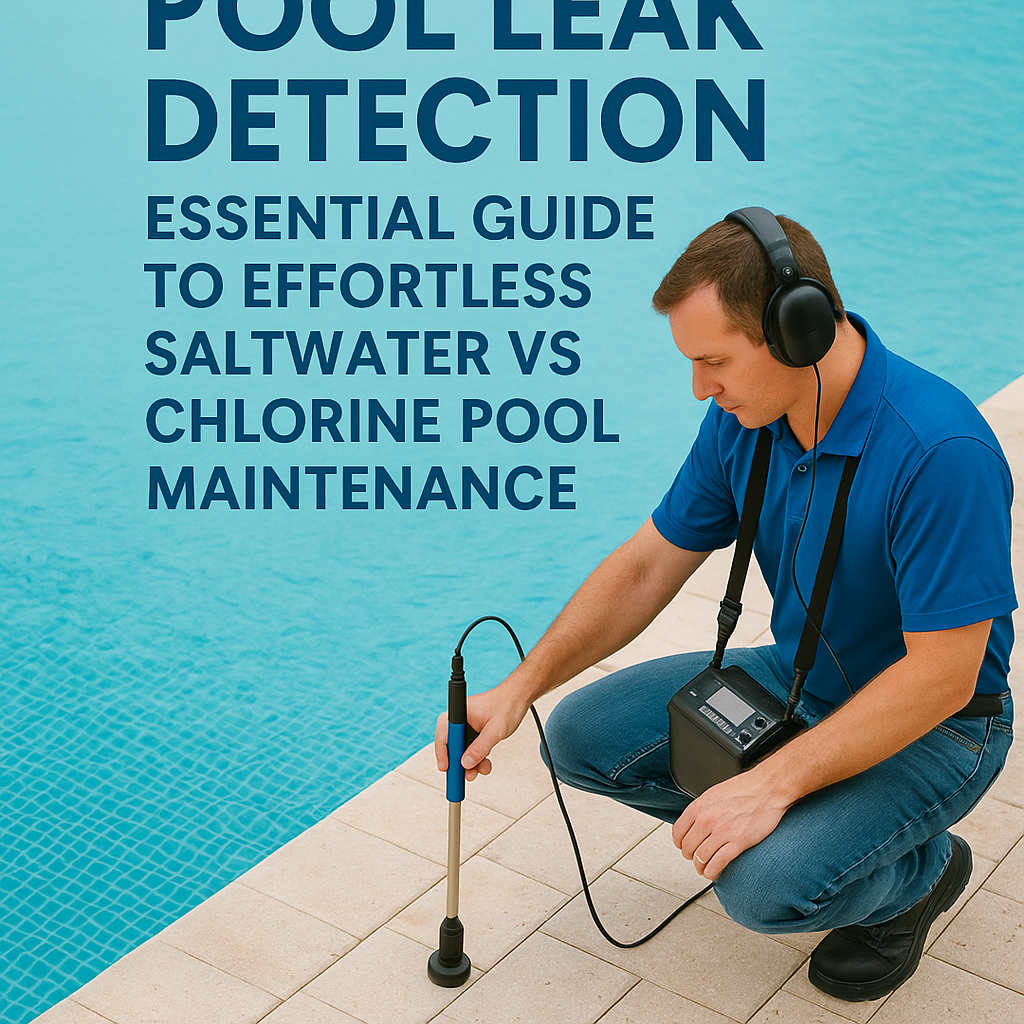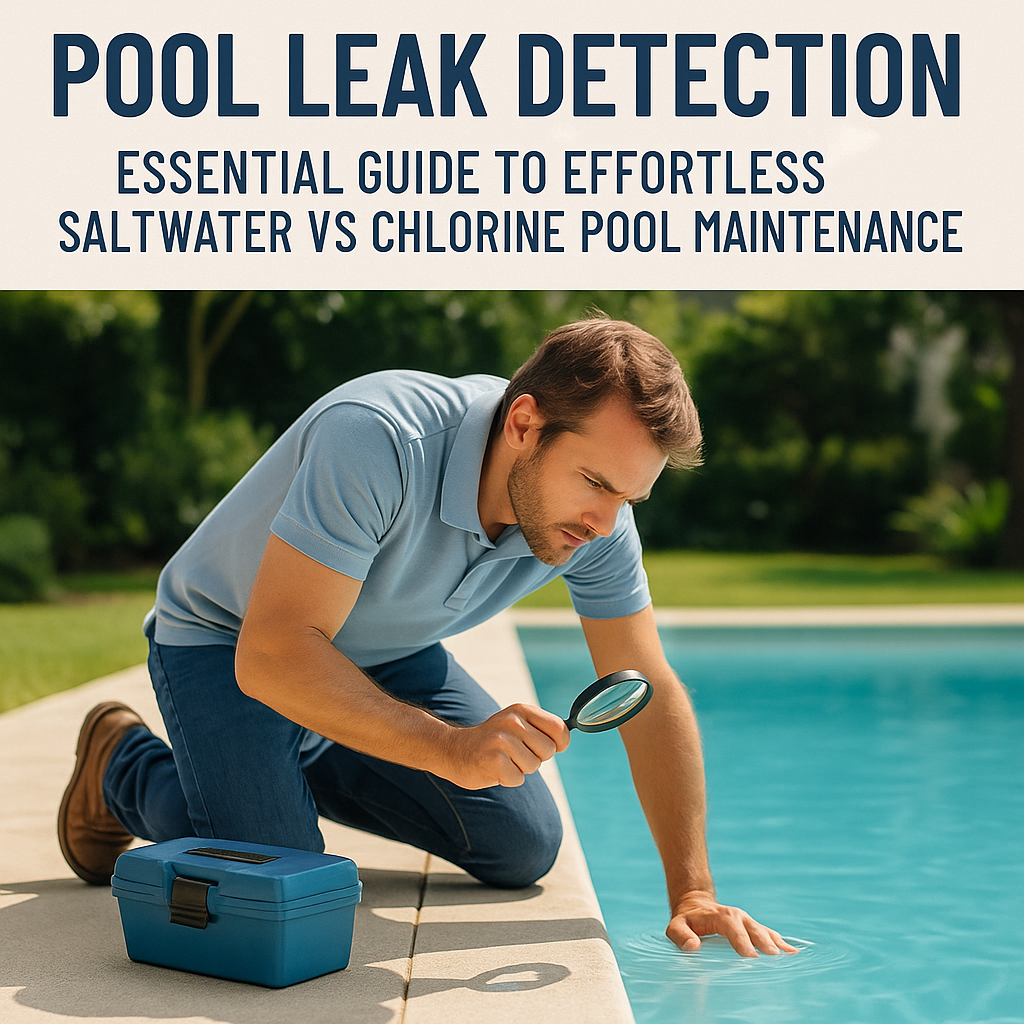Pool Leak Detection: The Essential Element in Pool Maintenance
When it comes to managing your swimming pool effectively, pool leak detection is a crucial aspect that cannot be underestimated. Many pool owners dread the thought of springing a leak within their beloved backyard oasis. Yet, despite everyone’s best intentions, leaks do in fact happen. Thankfully, with the right knowledge, they can be detected early and tackled before they grow into a daunting problem. In this article, we will compare the maintenance required for saltwater vs chlorine pools and explore various pool leak detection methods and repair strategies.
Understanding the Different Maintenance Needs: Saltwater Vs. Chlorine Pools
To begin, it’s important to comprehend that saltwater and chlorine pools have distinct maintenance needs. Contrary to common belief, saltwater pools still use chlorine to keep the pool clean. The difference lies in the process: saltwater pools generate chlorine naturally using electrolysis, while traditional chlorine pools require regular addition of chlorine.
The advantage of a saltwater pool is that it requires less daily maintenance due to the constant presence of chlorine. However, the initial installation is more expensive and the saltwater system needs regular checking to ensure all is functioning properly.
On the other hand, chlorine pools may initially be a cheaper alternative but the ongoing costs of pool chemicals and time-spent balancing pH levels can add up. Moreover, chlorine pools require closer monitoring than saltwater pools to avoid fluctuating chlorine levels. A consistent routine of checking chemical levels and adjusting as necessary can go a long way towards preventing pool leak problems associated with corrosion or breakdowns of pool components.
Pool Leak Detection: A Vital Aspect of Pool Maintenance
Pool leak detection is an integral part of maintaining any type of pool. Besides leading to a huge increase in water consumption, pool leaks, if left unchecked, can cause structural damage, weakened surrounding areas, and even harm the pool equipment.
The most common method used in pool leak detection is the bucket test. To perform this, fill a bucket with pool water and place it on the pool steps, then mark the water level inside the bucket and the pool water level outside. After 24 hours, if the water level has dropped more outside the bucket than inside, there’s a good chance you have a leak.
It’s important to note that to get accurate results, ensure your pool is not in use during the bucket test and there’s no backwashing, extracting water, or refilling the pool.
Pool Leak Repair: Preventing Further Damage
Upon successful pool leak detection comes the next phase: pool leak repair. If you’re dealing with a minor leak and possess some DIY prowess, leak repair kits available in the market can provide a temporary fix. They include epoxy putty capable of working even under water, and vinyl patch kits for vinyl-lined pools.
However, if the leak is substantial or located in less-accessible areas like the pool’s plumbing system, professional help is recommended. A pool expert or leak contractor will have the necessary equipment, skills, and knowledge to address the problem without causing further damage.
To Sum It Up
Pool leak detection and repair are crucial aspects of maintaining any swimming pool. Whether you own a saltwater or a chlorine pool, understanding the distinct maintenance needs of each, and applying proper leak detection methods can save you time, money and needless stress later. Remember, the earlier a pool leak is detected and repaired, the better. By being proactive, you can ensure that your swimming pool remains the paradise you intended it to be.
Finally, it’s important to note that while this article has provided you with basic knowledge on pool maintenance, each swimming pool is unique and may require specialized care. Consult with a pool expert for a thorough understanding of your pool’s specific needs and maintain your oasis in its optimum condition year-round.



